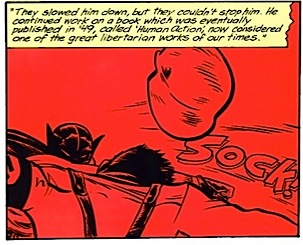 The touchdown at Osaka airport by night is rather enchanting: there is even a lit up ferris wheel visible from the air. Enter the customs area at the airport, however, and the mood is somewhat less magical. Behind the row of customs officers processing visitors is a massive yellow sign, perhaps more than 30 metres across, with the words: “Strict inspections are being carried out for the prevention of terrorism.” Every visitor to Japan is not only photographed, but also fingerprinted, one index finger from each hand.
The touchdown at Osaka airport by night is rather enchanting: there is even a lit up ferris wheel visible from the air. Enter the customs area at the airport, however, and the mood is somewhat less magical. Behind the row of customs officers processing visitors is a massive yellow sign, perhaps more than 30 metres across, with the words: “Strict inspections are being carried out for the prevention of terrorism.” Every visitor to Japan is not only photographed, but also fingerprinted, one index finger from each hand.
Japan is not the first country to go down this path. The American decision to introduce fingerprinting of visitors led the esteemed Italian philosopher Giorgio Agamben to turn down an NYU teaching invitiation in 2004 because he refused to submit to the procedure, seeing in it very menacing overtones. As Agamben wrote in Le Monde at the time of finger and retina prints and other such procedures, “by applying these techniques and these devices invented for the dangerous classes to a citizen, or rather to a human being as such, states … have made the person the ideal suspect, to the point that it’s humanity itself that has become the dangerous class.”Agamben pointed out that what begins at the border could find its way into other areas of political life within the state: “the bio-political tattooing the United States imposes now to enter its territory could well be the precursor to what we will be asked to accept later as the normal identity registration of a good citizen in the state’s gears and mechanisms. That’s why we must oppose it.”
The Japanese are, of course, following the American lead: as the Bush administration has entertained ever more intense suspicions of outsiders under the guise of its war on terror, it has given new animus to the xenophobic side of Japanese culture in its wake. I find the Osaka airport experience objectionable, and not only for the reason so well articulated by Agamben: travel to another country should not have to feel like a booking at a police station. As a visitor, I should not have to face a rebuttable presumption that I am up to no good. It is a remarkable achievement in the EU that European citizens are able to travel freely from one country to the next with minimal to no oversight. But the EU model is starting to look less like a glimpse of the future and more like a global exception.
It would be easier to accept the entry procedure to Japan, perhaps, if one had reason to believe that it will meet its stated objective of preventing terrorism. But as with Jeet Heer in a previous post, I have trouble taking what Japan says on terrorism seriously. I see the procedure as feeding a kind of indeterminate suspicion of the world, with little behind it in the form of coherent policy. Anti-terrorist rhetoric is now used the world over by states to strengthen their control and oversight, and Japan is playing its own version of this game.
What terrorists in particular does Japan hope to detect – and against what sources of intelligence? Recall that the Aum Shinrikyo sarin gas attack on Tokyo subways in 1995 – the most serious terrorist attack in Japanese history – was conceived of by graduates of Japan’s elite universities; the cult flourished under the plain light of day because most of its practitioners were, to all appearances, ordinary Japanese – the sort of people who would pass through airport security stalls without raising eyebrows. And then there is the question of what will happen to the photographic and fingerprinting information on visitors now being assembled. In a country that has managed to lose at least 10 million pension records from its own citizens, one is now simply forced to hope, as the price of a visit, that one’s personal fingerprinting and photographic information will remain secure in the hands of the Japanese state.
Japan is now hoping to improve its poor international ranking of inbound tourism – somewhere in the order of 35th place, way behind other G8 members and most other Asian countries. The tone for visitors begins at its entry gates, where first impressions are made.





